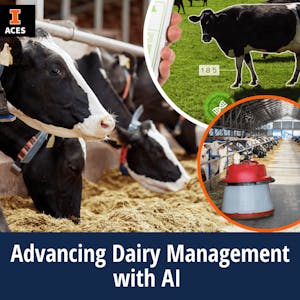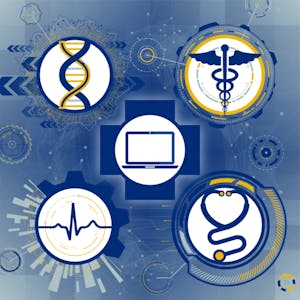ARM Cortex (STM32) Fundamentals: Building Embedded Systems
About this Course
Upon completing this course, you will: Master the use of floating-point data types and input/output handling in C. Understand and apply various operators and decision-making constructs in C programming. Execute advanced bitwise operations and control LEDs using embedded C. Achieve proficiency in bitwise manipulation and loop constructs for efficient code iteration and embedded system control. Course Description Embark on a comprehensive journey through ARM Cortex (STM32) Fundamentals: Building Embedded Systems. This course begins with essential data manipulation and input/output handling techniques, advancing your understanding of floating-point data types and versatile user input methods. Dive into operators and decision-making constructs, mastering for standardized integer types and honing skills in relational and logical operators. Explore the complexities of bitwise operations, enabling precise LED control through embedded C programming. Elevate your proficiency with bitwise manipulation, mastering loop constructs for efficient code iteration and intricate LED control sequences. By course end, you will possess the essential skills required for developing sophisticated embedded systems using ARM Cortex (STM32) technology. This course\'s unique focus on practical, hands-on applications and advanced techniques ensures you gain robust, real-world competencies in embedded systems development. Target Learners This course is ideal for: 1) Aspiring embedded systems engineers who want to gain a solid foundation in ARM Cortex (STM32) microcontroller programming. 2) Electronics and computer engineering students seeking practical experience in embedded systems. 3) Professional engineers looking to enhance their skills in embedded C programming and ARM Cortex (STM32) development. Prerequisites Before taking this course, learners should have: 1) Basic knowledge of C programming, including variables, data types, and basic control structures. 2) Familiarity with general computer programming concepts and logic. 3) An understanding of basic electronics principles, such as voltage, current, and circuit components. 4) A willingness to learn and experiment with embedded systems hardware and software.Created by: EDUCBA

Related Online Courses
This course explores the evolving landscape of digital marketing, spotlighting recent trends reshaping brand-audience connections online. Learners gain insights into innovative strategies and... more
By completing this course, you will gain a solid understanding of the basics of AI and its role in dairy systems. You will learn to identify key data types used in dairy analytics, such as... more
This course is designed for professionals who want to practice projects that follow industry standards. The course consists of two projects, one of which deals with designing databases in Snowflake... more
Course Description: This course provides a comprehensive guide to developing robust web applications using the Spring MVC framework. Participants will learn the fundamentals of the... more
This Specialization is intended for health professionals, administrators, health IT staff, vendors, startups, and patients who need or want to participate in the health IT/informatics process.... more








